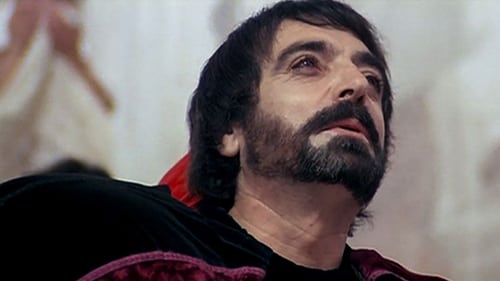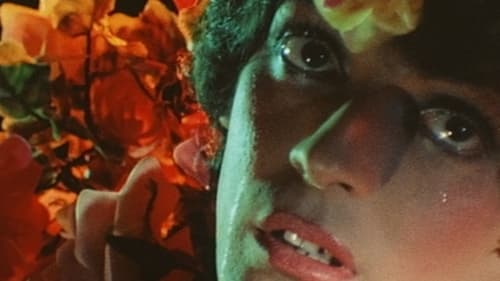Lydia Mancinelli
Birth : 1936-08-10, Rome, Italy
History
Lydia Mancinelli is an Italian stage and screen actress, remembered above all for her long artistic and emotional association with Carmelo Bene .

signora Donadoni
Funny, entertaining comedy with a few storylines. All of them have one thing in common - a resort town of Rimini in Italy.

Madre del Mostro
A string of sex murders has been plaguing Florence for almost 15 years, in which a serial killer brutally murders couples who are sneaking "a quickie" in public areas. A writer who is doing research for a book about the crimes sets out to uncover the identity of the killer, aided by his beautiful girlfriend. Based on a true story.

Drama by Lord George Byron, music by Robert Schumann. Filmed at Teatro Comunale di Bologna, 1979.

Duchessa di York
Riccardo III (da Shakespeare) secondo Carmelo Bene

Kate
An experimental video variation on Shakespeare's Hamlet.

Kate
The "Hamlet" in this well-mounted Italian spoof is the Danish prince, not a small town or village. The movie irreverently draws on both the Shakespeare play and the 1877 story by Jules Laforgue. In the story, Hamlet (Carmelo Bene) is a would-be playwright. He suffers from inept Freudian analysis by Polonius (Pippo Tuminelli), and Ophelia and Gertrude (Isabella Russo & Luciana Cante) are women conjured up in his erotic imagination.

Ventriloqua
Adapted from the ninth chapter of the novel "Controcorrente" (1884) by Joris Karl Huysmans. Its narrative concentrates almost entirely on its principal character and is mostly a catalogue of the tastes and inner life of Jean des Esseintes, an eccentric, reclusive aesthete and antihero who loathes 19th-century bourgeois society and tries to retreat into an ideal artistic world of his own creation.

Erodiade
Salome is the daughter of the second wife of King Herod. The King is infatuated with her and, after she fails to seduce the prophet John The Baptist, she dances for the King in order to ask for his execution.

In this movie, director Volker Koch wants to reveal "petty-bourgeois fixations of consciousness and late capitalist myths of happiness". The protagonists: an American hustler, a drama student, a Munich waitress and her boyfriend who hope for money, a career and luck from a trip to Rome together.

Mother
Spectacular Italian comedy-drama directed by Carmelo Bene. The narrative follows how Don Giovanni tries to seduce a young woman who is manically searching for Christian icons. The film is loosely based on Jules Barbey d'Aurevilly's short story "The Greatest Love of Don Juan", from the collection Les Diaboliques. The film premiered in the Directors' Fortnight section of the Cannes Film Festival.

Saint Margareth
A man (Carmelo Bene) can not bear to be part of society. He considers himself a "jerk" and so invents its own philosophy, which involves the destruction of his land of Puglia where all citizens are devoted to the Catholic religion. However, the man can not destroy the belief of the pilgrims of Salento, because a woman would prevent that. It is an unknown "Santa Margherita", which tries to divert man from his weird and impossible philosophy. Successive scenes of the film show various situations unreal and dream in which the two protagonists try to obtain the best one on the other. After a blasphemous dialogue between monks, the man includes his whole philosophy in a Moorish building. In fact, this seems to have been the scene of the massacre of the famous 800 Martyrs of Otranto, which are considered by the scetic man the absolute death of Christianity.

The Woman
Hermitage, defined by Bene as "a rehearsal for lenses", beyond any literal rendition - its narrative trace comes from one of his anti-novels, Credito Italiano V.E.R.D.I - displays his immediate attitude to thinking a cinematic language completely based on actor's movements and actions, and more specifically, on his presence and his schemes. Camouflaged or naked, still or moving, his body seems to play and be played at the same time, shifted by objective and subjective tensions, both metaphorically and visually speaking.

In 1966, Bene presented The Pink and the Black, his successful theatrical adaptation of Matthew Gregory Lewis’ lurid Gothic novel from 1796. Experimental filmmaker Paolo Brunatto filmed some of the play’s rehearsals in a Rome apartment (also frequented also by the Living Theatre). Bene's artistry is encapsulated in one sentence: “One cannot continue to prostitute the idea of theatre, which stands only for a magical, brutal link with reality."









